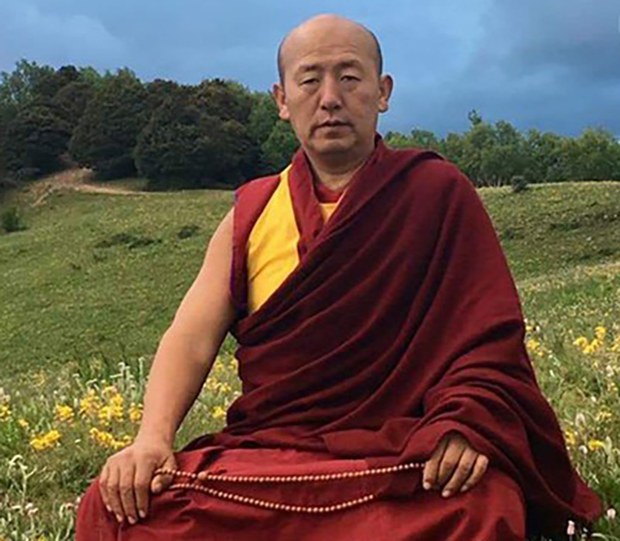Tibetan political prisoner and monk dies in Chinese custody
Share

Geshe Phende Gyaltsen in an undated photo.
Tibetan political prisoner and Buddhist monk Geshe Phende Gyaltsen died in prison on Jan. 26, sources inside Tibet and in exile told Radio Free Asia. He was 56.
Chinese authorities reportedly warned local residents not to spread the news of his death, a source inside Tibet said, adding that “Geshe Phende was very healthy and did not suffer from any illness before he was imprisoned by the Chinese government.”
Chinese police arrested him last March, detained for “actively engaging in the renovation of Shedrub Dhargyeling monastery in Lithang,” a Tibetan source living in exile told RFA.
“He also helped and assisted as a mediator between conflicting parties in the county,” the source said. “We don’t know if he was found guilty.”
Born in Jhongpa village in Lithang, Tibet, Phende Gyaltsen visited India in 1985 to study Buddhism and received a Geshe degree – similar to a PhD – from the Sera Mey Monastery in southern India. He later returned back to Tibet.
In July 2022, Phende Gyaltsen was taken to a hospital in Lithang because of his ill health. Still, he was reportedly returned to detention, where he passed away last month.
“We believe that his health condition deteriorated in the prison after going through physical torture,” the source inside Tibet said.
Authorities kept his body from the public, who wanted to pay last respects to the religious figure. But Chinese authorities placed tight restrictions in the region and the source said even his family was not allowed to perform last rites on his body.
Pema Gyal, a researcher at Tibet Watch, said that Phende Gyaltsen’s story is one of several Tibetans who have suffered under Chinese rule.
“Many innocent Tibetans who died in the Chinese prisons died solely because of the harsh physical abuse and mistreatment they go through under the Chinese government from coercing confessions,” he said.
Translated by Tenzin Dickyi. Edited by Nawar Nemeh and Malcolm Foster.







